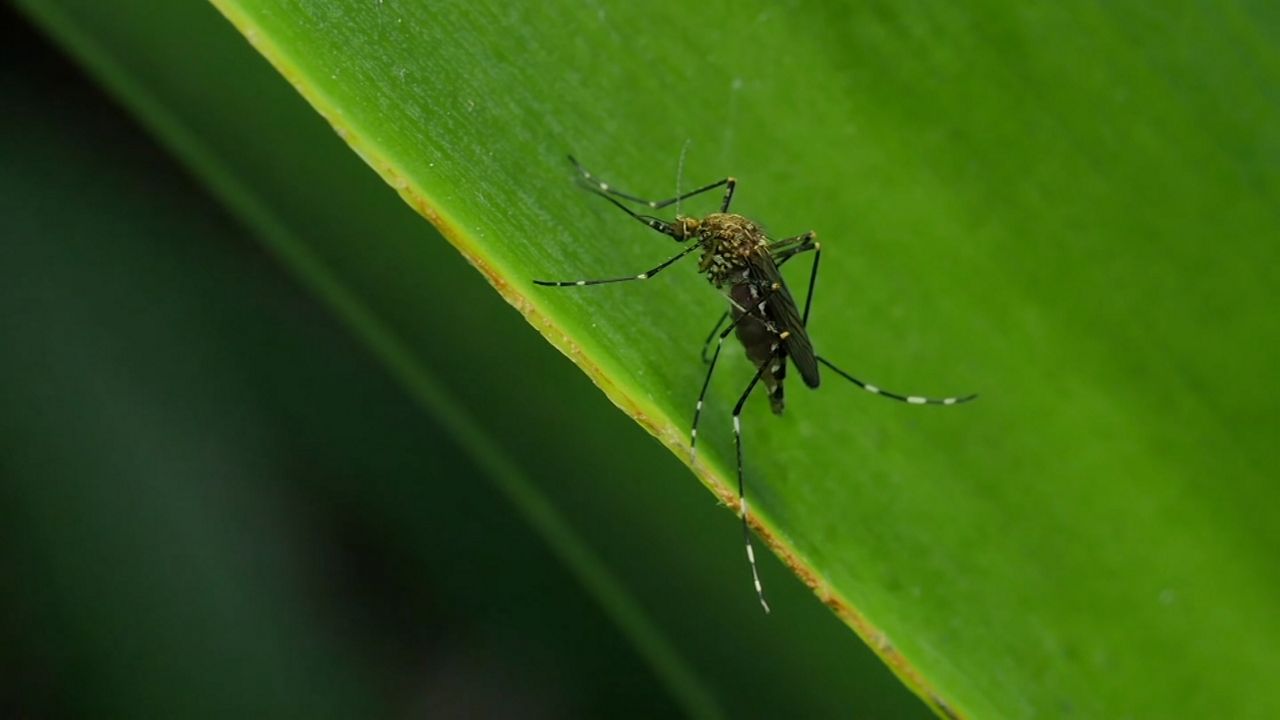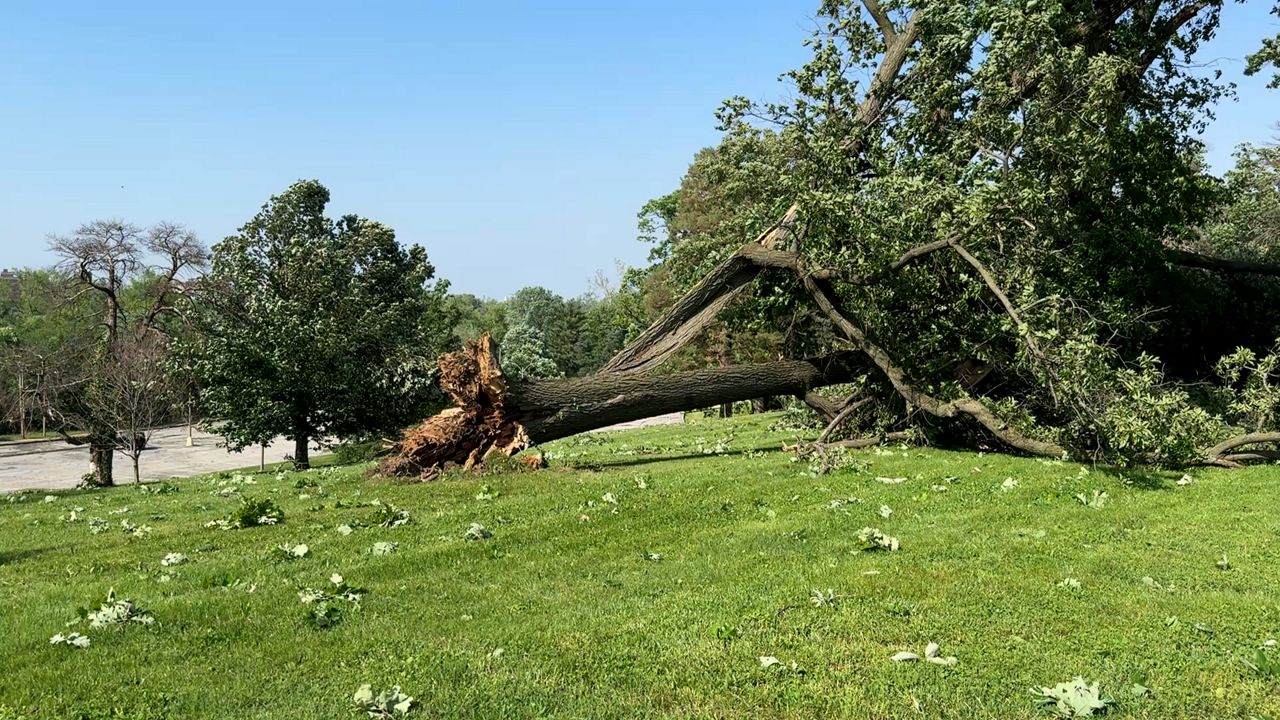ST. CHARLES, Mo.—St. Charles City is starting off May by combatting mosquitoes. The city released a comical social media post remindeding the public that they would begin fogging the insects on May 1 at 7 p.m.
According to the St. Charles City's website, crews spray an invisible pesticide city-wide but will pause the sprayer as a courtesy if they spot walkers, bikers and others outdoors. The motor continues to run even without dispensing the chemical. To minimize potential environmental impact, the city uses a thimble full per acre of ground. St. Charles says the pesticide is safe for humans and all animals, including birds and frogs.
The pesticide targets mosquito larvae and incapacitates adult mosquitoes from flying which disrupts the bug’s breeding cycle. Mosquitoes can develop in any standing standing water that is present for more than five days.
St. Charles suggestions to reduce mosquito population:
- Dump standing water and clean pet bowls, bird baths, neglected pools and their covers, hot tubs, children wading pools and anywhere else water collects
- Stock ornamental pools with fish
- Cover or store any toy or gardening equipment that can hold water
- Repair leaky outdoor faucets
- Repair missing, damaged or improperly installed window or door screens
- Remove junk or discarded tires, drill holes in the bottom of tire swings for drainage
- Recycle tin cans, bottles, jars, and other containers or keep them clean
- Fill in standing water areas of the yard
- Don’t let runoff water from your AC unit accumulate in shady areas
- Don’t dump grass clippings, branches or other unwanted foliage in creeks
- Mow and trim bushes often
- Use recommended insecticides or natural repellants
- Hire a pest control service to spray your property
How to discourage being bit by mosquitoes:
- After sunscreen, apply EPA-registered insect repellent containing DEET, picaridin, IR355 or oil of lemon euclyptus
- Reapply repellent every few hours
- Wear long sleeved shirts and pants
- Don’t spray repellent on skin beneath clothes
- Treat clothing and gear with permethrin or wear permethrin-treated clothing
For more information, visit the city’s website on mosquito control operations or contact the Department of Public Works at (636) 949-3363.











